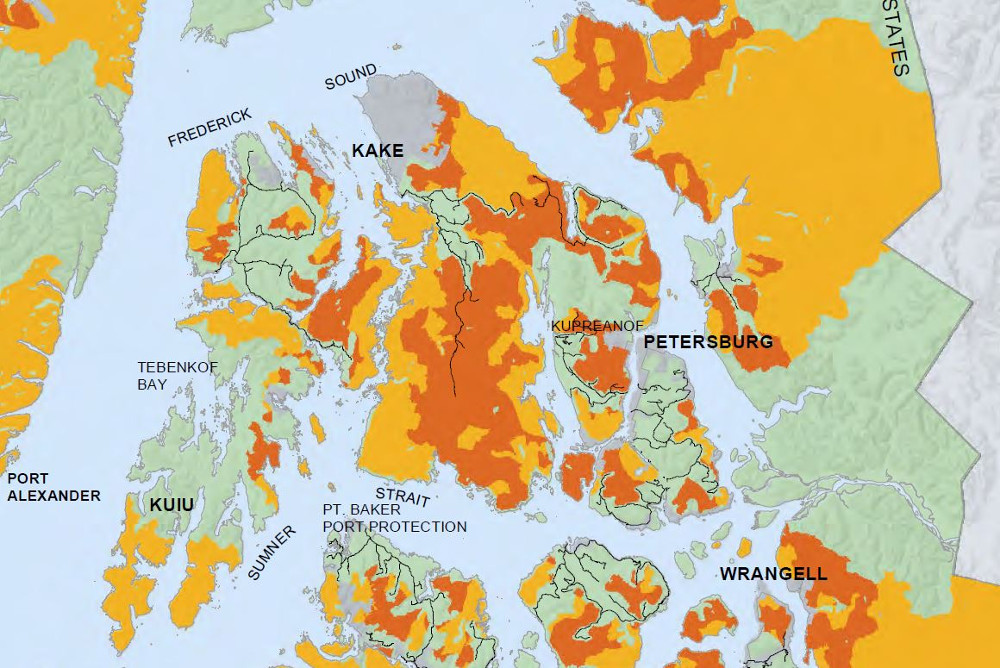
The official position of the Petersburg borough on the roadless rule on the Tongass National Forest is no position at all. That’s after the assembly this fall could not agree on whether to support the status quo for protecting 9.2 million acres from logging and road building, or a full exemption for those lands.
Most people testifying to the local assembly and at a meeting held by the U.S. Forest Service this fall have been in support of the no action alternative, keeping protection on those lands.
Local resident Dan Sullivan was latest to urge the assembly to take that stance during a December 16 meeting.
“When you build a road, you cut a tree here on the Tongass, that’s a hundred years, it’s there for a hundred years,” Sullivan said. “What it does to the soil, we don’t even know. Whether we can even get even a second cut out of second growth stand, so. I think those stands need to stay the way they are. They’re there. If for some reason we need them in the future, they’re there for us but right now I would encourage you to support the no action alternative.”
Other alternatives presented by the federal agency this year proposed a full rollback of roadless protections, partial exemptions and even on option for increased protection for Tongass roadless lands. Alternative six, the full exemption, is the Forest Service’s preferred alternative. It’s also the choice of Agriculture secretary Sonny Perdue, who will make the decision on the rule change, and elected leaders from the governor to the president. The borough assembly also had a letter this month supporting that stance from local resident Max Worhatch.
Assembly member Chelsea Tremblay drafted a letter expressing discontent with the federal government’s process of making the rule change.
“So my reason for drafting this partly I said I would at the last meeting and I try to follow through with stuff like that,” she explained. “But I also wanted to amplify the people like me sat in that room with the Forest Service representatives and to really hear that all the work that had been done by many people, and even people who were just there curious about what the options were, they were all basically told that the decision was being made. And I think that that’s a rather dispiriting thing to hear from any representative on any process, especially one that strikes so close to home.”
The assembly postponed their decision on the roadless issue in November. Earlier this month they voted down competing resolutions supporting the status quo or a full exemption. Unable to agree, some assembly members instead have opposed taking any official stance. Bob Lynn did not support sending Tremblay’s letter.
“I see this we had a vote on both ends of the spectrum last time, both voted no,” Lynn said. “And I think that kind of represents where this community is at. And I probably going to be voting no because I think we took a position that would be probably similar to, I think we kind of mirror what our community is and so I’m just going to leave it has we had it.”
Lynn was in the majority on this and Tremblay didn’t have the votes to send that letter. Only Jeff Meucci and Jeigh Stanton Gregor joined her in support of it and it failed 4-3.
The comment deadline was December 17th.
The assembly did take a stance on a defunct mine on a tributary of the Taku River in British Columbia. They were unanimous in passing a resolution seeking clean up of the Tulsequah Chief mine.









